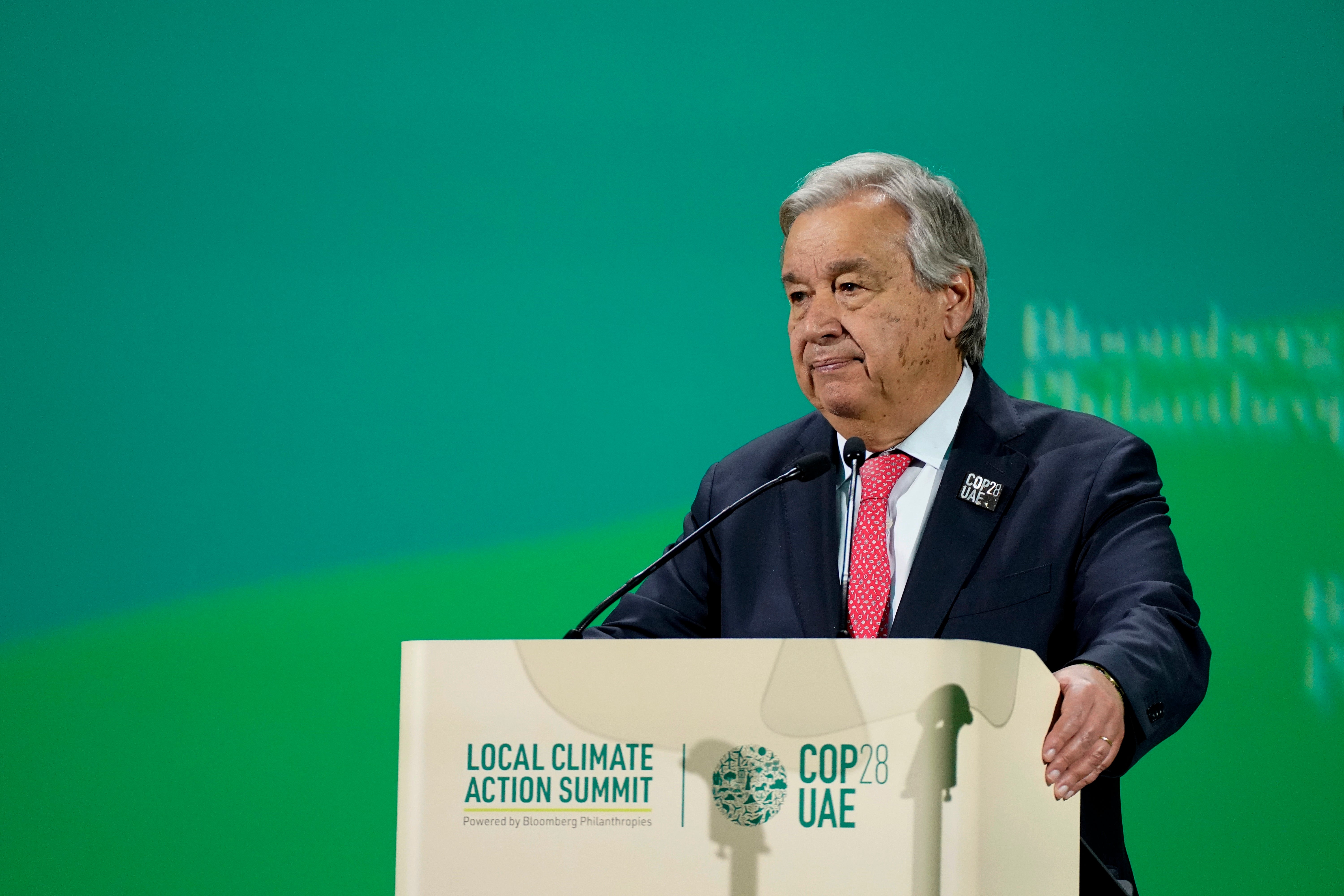It’s more important than ever to talk about how climate affects immigration
With large-scale migration due to explode over the next few decades, Andrew Gilmour explains the five steps which need to be taken to avoid misery and destabilisation for millions all over the world


Last year, Antonio Guterres, the cautious-speaking United Nations secretary general, warned that rising sea levels threaten “a mass exodus of entire populations on a biblical scale”. Soaring temperatures will have a similar effect, as unprecedented heat levels make homes uninhabitable and lands uncultivable.
The world needs to wake up to a new “triple nexus” between climate change, conflict and migration that is likely to become a dominant feature of international relations – and one with very domestic ramifications. Climate change is a contributory cause of both conflict and migration; while migration is a result of both climate change and conflict.
Two years ago, it was estimated that of the record number of 100 million forcibly displaced people in the world that year, one third were caused by weather-related phenomena such as droughts, floods, storms and extreme heat. By 2050, that figure is likely to be dwarfed as a result of more intense and more frequent disasters – some estimates exceed one billion migrants.
Many of those forced to move because of climate change will remain in their own regions. But many will move to more temperate climates and richer regions – first and foremost Europe. But if one million arrivals could convulse the liberal political settlement in much of Europe in 2015, what would 10 million do – let alone 100 million?
It is a perverse irony that many of Europe’s far-right parties and Trump Republicans in the US – strongly opposed both to immigration and also to climate action – know they stand to benefit electorally from influxes of people fleeing the climate crisis (a crisis to which they themselves are contributing by their persistent contemptuous opposition to net zero initiatives).
Russia, too, believes it will benefit from the discord, destabilisation and violence that large-scale migration might trigger in Western countries. And it’s no coincidence that far-right parties (many of which are supported by Moscow) support President Putin’s “family values”, his climate “scepticism”, and his war aims in Ukraine.
Having seen the effects of Syrian migration on Europe in 2015, which contributed to the rise of right-wing movements and also the success of Britain’s “Leave” campaign, Putin authorised the deployment of Wagner Group mercenaries in African countries, including Libya and Mali. Their goal was to extract resources, deepen political instability, and provoke people to flee across the Mediterranean.
The last was spelled out as a deliberate strategy in 2022 by the head of the Russian Security Council, Nikolai Patrushev. Amid the grain shortages sparked by the Russian invasion of Ukraine (which he naturally blamed on the West), he declared that “tens of millions of people” in Africa and the Middle East will come to the brink of starvation. “In order to survive, they will flee to Europe.” He added, wishfully, “I’m not sure Europe will survive the crisis”.
What steps need to be taken to head off a situation whereby the climate crisis forces tens of millions of people to migrate from their countries, most of whom have contributed practically nothing to the emissions that have caused the crisis?
First, politicians need to squarely face the issue. Even though soaring anti-immigrant sentiment makes this an electorally toxic topic, our leaders need to wake up to the almost certain massive increase of climate-driven migration.
Second, we need to strengthen legal protections for those fleeing climate disaster. Considering them just as much “refugees” as those who flee from conflict or persecution – instead of dismissing them as economic “migrants” – is a first step.
Third, development aid and climate finance need to be targeted at the countries worst affected by both climate change and conflict. Improved agricultural methods could help persuade communities that there’s hope for a viable future in their countries of origin, reducing incentives to migrate. The international climate finance system urgently needs reforming so that the most vulnerable countries have access to much needed funding.
Fourth, we need to invest in collaborative approaches to climate resilience and natural resource management. Environmental peacebuilding approaches have proven effective at uniting rival communities to tackle shared challenges.
Fifth, it’s essential to counter far-right disinformation and hate speech against migrants. The disgraceful riots by the English Defence League in Southport last week underline the importance of this. We need to highlight extremist links with Moscow’s agenda; to show the benefits of migrants (not least for Western countries with ageing populations); and to prepare host communities in receiving states, through education and dialogue.
Each of these five elements will require serious funding, new partnerships and – above all – political courage. None will be easy. But failure to take such action would condemn millions more to misery and destabilise our own societies, while the only people to benefit will be those in Moscow willing on these trends, together with their myopic backers from Western far-right parties.
The Burning Question by Andrew Gilmour is published by the Berghof Foundation and available now
Join our commenting forum
Join thought-provoking conversations, follow other Independent readers and see their replies
Comments
Bookmark popover
Removed from bookmarks